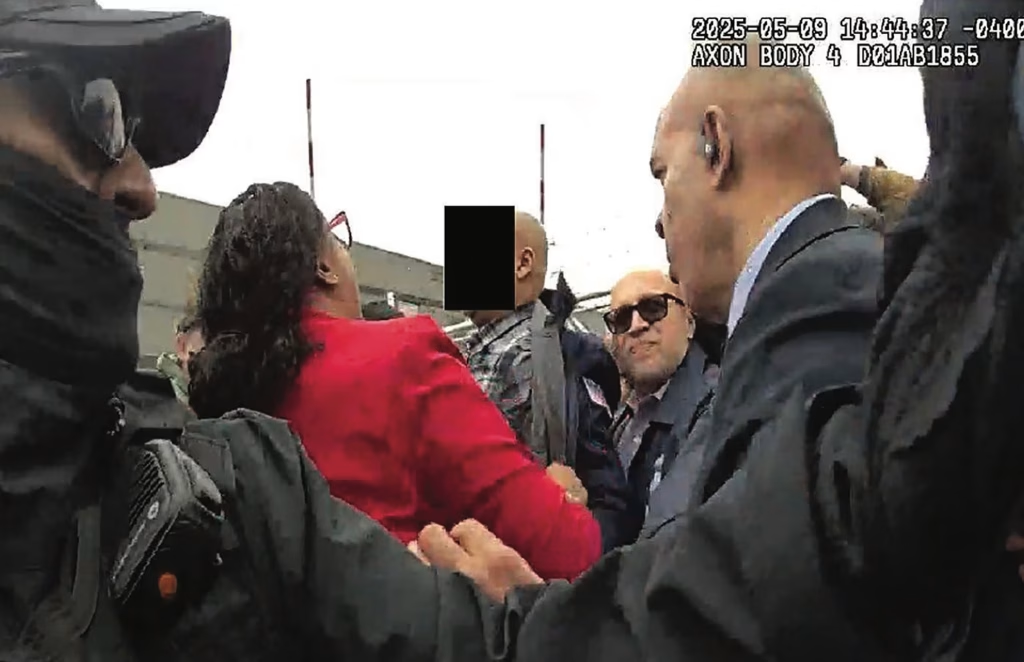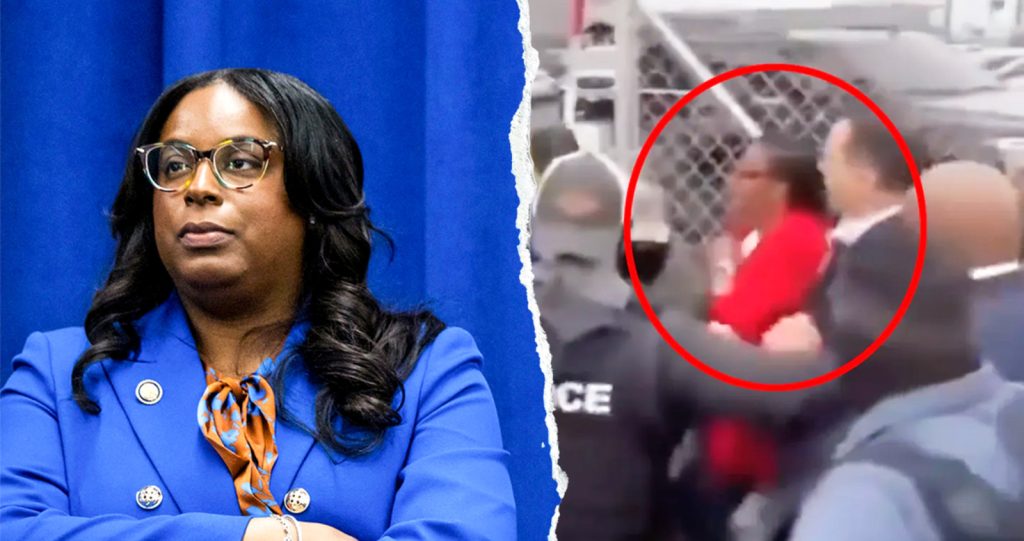
U.S. District Judge Jamel Semper has ruled that federal prosecutors can push ahead with their criminal case against New Jersey Democratic Rep. Lamonica McIver, rejecting her bid to throw out the charges connected to a heated encounter at a federal immigration facility earlier this year.
McIver’s Attempt to Dismiss Charges Falls Short
McIver was taken into custody after a confrontation during a congressional visit to an Immigration and Customs Enforcement (ICE) facility in New Jersey. She was accused of forcibly obstructing federal officers — allegations her legal team argues arose while she was performing legitimate oversight responsibilities as a member of Congress.
Her attorneys insisted she was protected under the Constitution’s clause that bars the prosecution of lawmakers engaged in official legislative activity. Judge Semper, however, said the congresswoman could not shield all of her conduct behind legislative immunity. Although he found that one charge touches the Constitution’s Speech or Debate protections, he ruled that the remaining counts can proceed.
He also dismissed McIver’s claim that the prosecution — now under the Trump administration — was politically driven, saying she failed to demonstrate any evidence of vindictive intent.
DHS Removes Multiple Posts Following Court Order

At the center of the controversy are several statements made by the Department of Homeland Security (DHS) shortly after the May confrontation at the Delaney Hall detention center in Newark. The posts heavily criticized McIver and other Democratic lawmakers who toured the facility, framing their presence as disruptive and unsafe.
Those posts have now been deleted after Judge Semper directed the government to remove any public messaging that could influence the ongoing case. DHS complied with most of the court’s request, though one post created by a private journalist remained online because the government had no authority to remove it.
Potential 17-Year Sentence if Convicted
McIver has pleaded not guilty to all charges. Prosecutors say video evidence shows her pushing and striking an ICE officer during the visit. If she is convicted on all counts, she could face up to 17 years in prison.
Her defense team maintains that the confrontation was mischaracterized and that the charges undermine her constitutional protections as an elected official. They also accuse federal agencies of trying to influence the public narrative through inflammatory commentary.
Defense Accuses DHS of Dragging Its Feet
Tension escalated again when McIver’s attorney, Lee Cortes, notified the court in a November 6 letter that DHS had not fully complied with the judge’s takedown order. The defense said DHS was removing posts slowly, issuing new public comments, and keeping others accessible despite their potential to prejudice the case.
Cortes warned that without stricter enforcement, McIver would be forced to “play Whac-A-Mole” with government officials who continued making public statements unrelated to the indictment.
Deleted DHS Statements Targeted McIver
Among the removed posts were comments portraying Delaney Hall as a facility housing “the worst of the worst” and accusing Democratic lawmakers of endangering federal staff and detainees. Another deleted message claimed the May 9 encounter “was not oversight” but a “political stunt,” insisting that “members of Congress are not above the law.”
The courtroom dispute over public messaging now runs parallel to the criminal case itself, setting the stage for a high-profile legal fight that could test the limits of congressional immunity, executive authority, and the federal government’s handling of public communication during active prosecutions.
VIDEO FROM THE INCIDENT:


